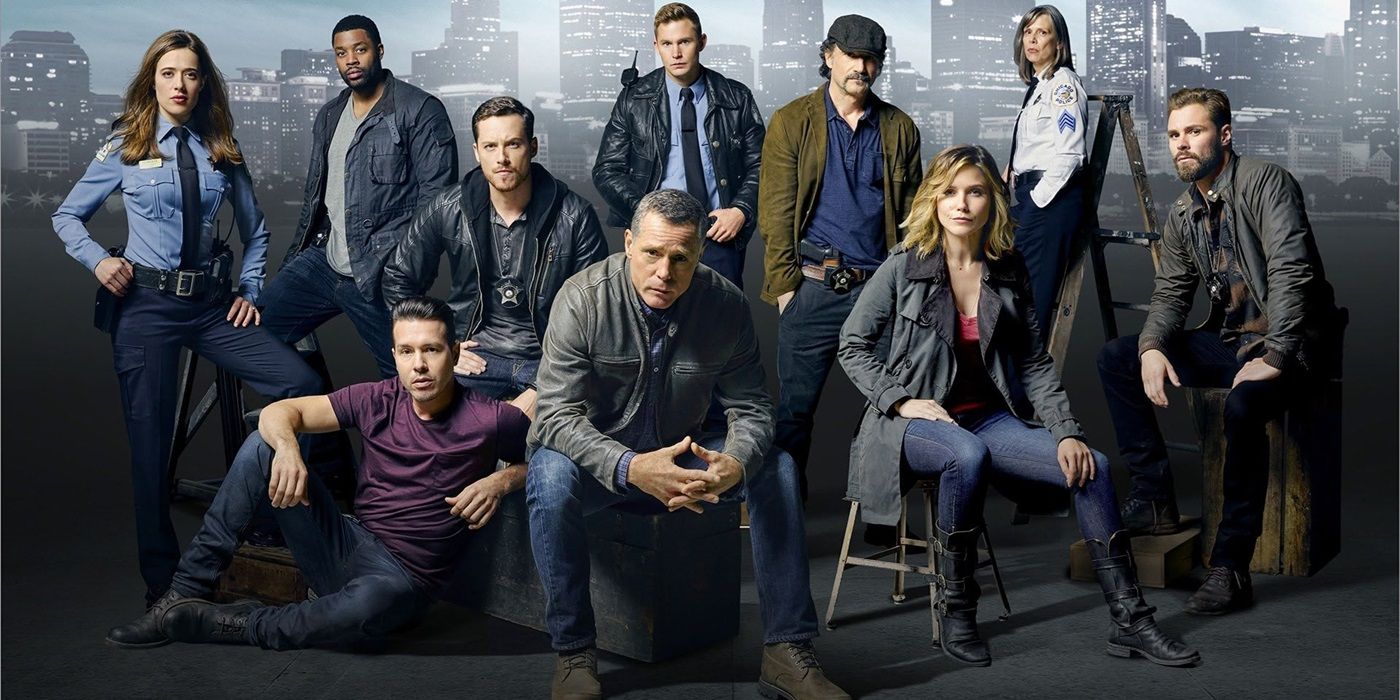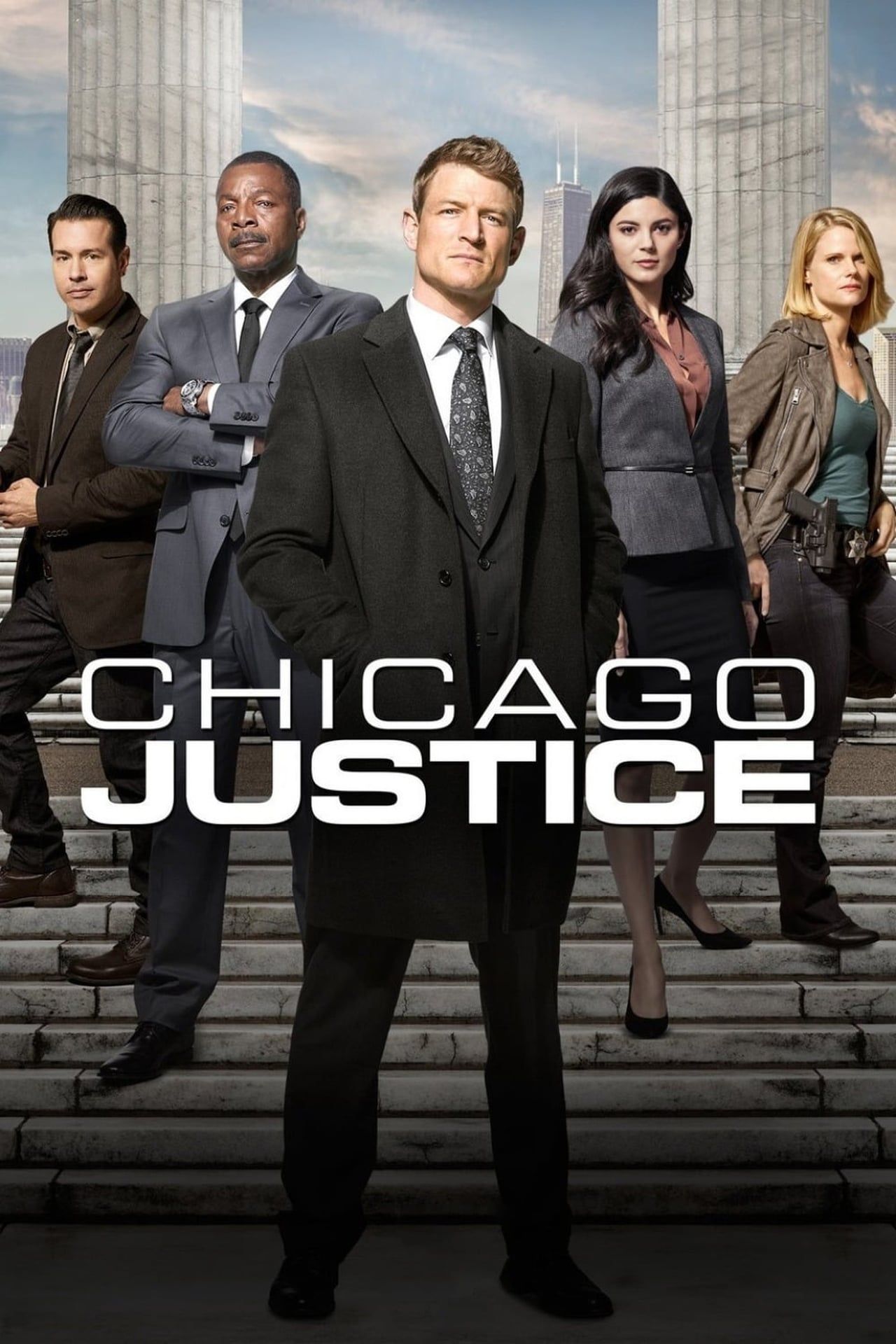When Chicago Justice premiered in 2017, it had all the makings of another long-running hit for NBC. It was the fourth entry in Dick Wolf’s One Chicago universe, boasting a strong ensemble, a clear point of view, and a format that added legal depth to a franchise built on high-stakes action. Centered on Assistant State’s Attorney Peter Stone (Philip Winchester), the show brought courtroom drama to the forefront — but unlike Law & Order, it leaned into character and political nuance as much as legal procedure. At a moment where television was starting to reckon more openly with systemic failures, Chicago Justice felt like the right show at the right time… but NBC cancelled it after one season.
‘Chicago Justice’ Was a Perfect Addition to NBC’s One Chicago Universe
In hindsight, NBC’s decision to cancel Chicago Justice feels increasingly short-sighted, especially when you consider how much ground the show covered in just 13 episodes. From headline-inspired cases to its refreshingly character-driven approach, Chicago Justice stood apart from other procedurals on network TV. And with strong performances from Winchester, breakout turns from Monica Barbaro as Assistant State’s Attorney Anna Valdez, and a commanding presence from the late, great Carl Weathers as State’s Attorney Mark Jefferies, it had the kind of cast that could’ve carried the series for years. It was also exciting to see Jon Seda return as Antonio Dawson, a familiar face from Chicago Fire and Chicago P.D., adding another connective thread to the franchise. If given the same long-term investment as its Chicago siblings, Justice might have grown into one of the most politically resonant shows in the Dick Wolf universe.
What set Chicago Justice apart was how it leaned into the drama of the courtroom and the inner workings of seeking justice, rather than the action-heavy pacing of its counterparts. It spotlighted a different kind of hero: prosecutors and legal minds trying to navigate a system they knew wasn’t always fair. The show confronted the complexity of modern prosecutions, from corrupt cops and systemic racism to public pressure and political optics, without resorting to easy answers. It gave viewers something to think about each week, reflecting the uncomfortable reality of pursuing justice in a flawed system, all of which was told through compelling characters.

Related
‘Chicago P.D.’s Fate Has Been Decided by NBC
The announcement was made along with the other Chicago One series.
Where Law & Order often kept an emotional distance, Chicago Justice leaned into internal conflict and moral ambiguity. That gave the show a sharper edge, one that felt aligned with shifting cultural conversations around power, accountability, and trust. And that edge feels even more relevant now. In today’s media landscape, audiences are more engaged than ever in conversations about how justice is administered, and how often it fails. A show like Chicago Justice, which wasn’t afraid to ask hard questions or put its characters in ethically gray territory, might actually resonate more in 2025 than it did in 2017.
‘Chicago Justice’ Would Thrive in Today’s Streaming Landscape
Chicago Justice wasn’t cancelled because of poor ratings or lack of potential, which makes NBC’s decision not to give it a real shot all the more frustrating. It was primarily a victim of scheduling, axed three years before the launch of Peacock. At the time, NBC was restructuring its primetime lineup to make room for new shows, and despite being part of the successful One Chicago franchise, Justice was the one that didn’t make the cut. NBC Chairman Robert Greenblatt explained:
“It just became somewhat of a real estate issue and just looking at how many of these Chicago shows we can sustain, we thought they are all good but it seemed like Justice was the most conventional, it was the closest to a Law & Order show, so we thought maybe this is the one we should sacrifice. But it wasn’t because the show wasn’t good, it was really because a lot of other factors.”
Rather than receiving the multi-season runway its sister series enjoyed, Justice was pulled before it had the chance to fully establish itself, which is unfortunate, considering a show is just starting to find its voice in its first season. Now, with Peacock providing a home for more nuanced, serialized storytelling, and Law & Order: Organized Crime finding its audience there, Chicago Justice feels more ahead of its time than ever before. It’s easy to imagine the show thriving in today’s streaming-first landscape. A platform like Peacock could give it the creative freedom and breathing room it never had on network television. And with renewed interest in smart legal dramas and culturally relevant stories about accountability and systemic flaws, there’s still a strong case to bring it back.
Chicago Justice may not have had the flashiest start, but it was a show with real promise, and NBC made a mistake letting it go too soon. In just 13 episodes, it introduced complex characters, asked urgent questions, and laid the groundwork for meaningful growth. It didn’t need to match the high-octane pace of Chicago Fire or Chicago P.D. because it offered something different: a grounded, thoughtful look at how justice is pursued, compromised, and fought for in an increasingly complicated world. And who doesn’t want more shows like that?






